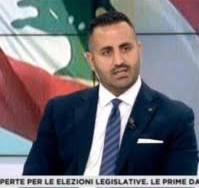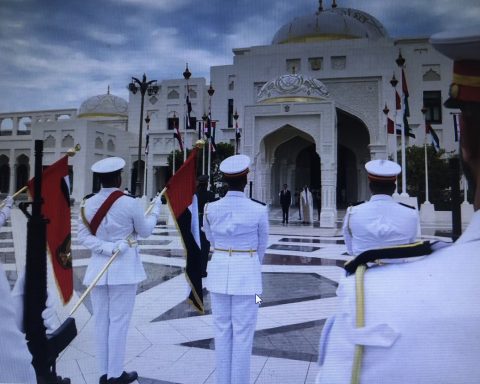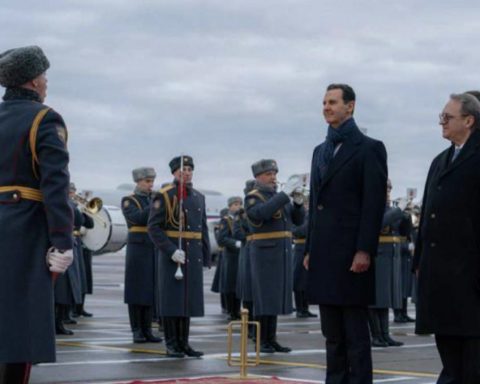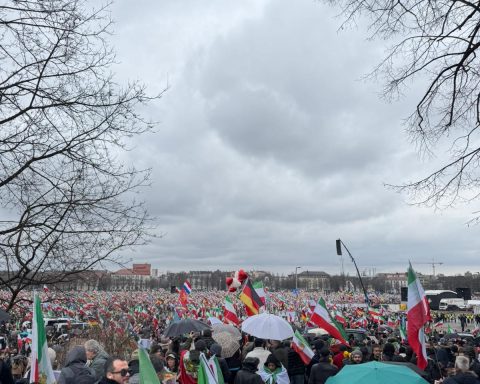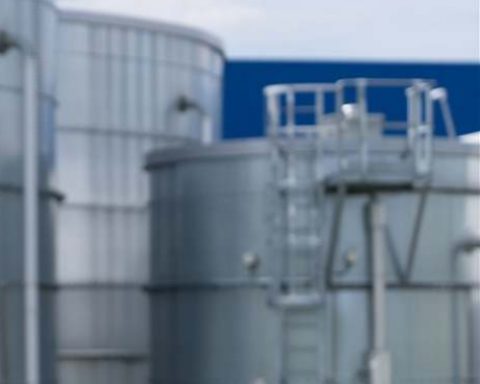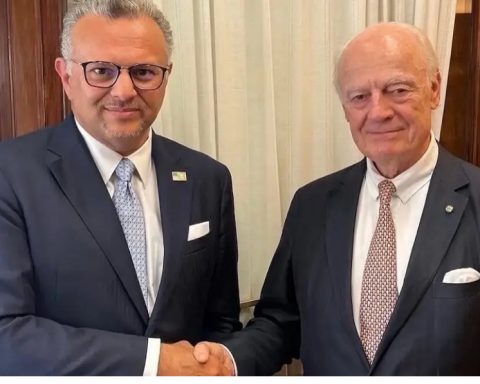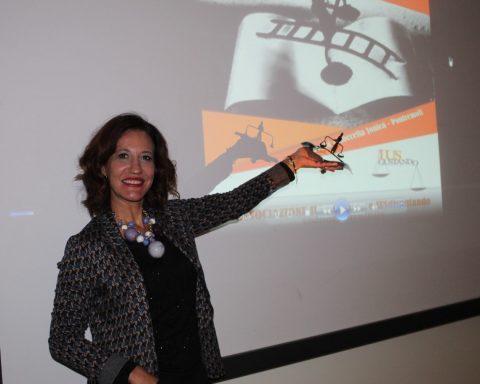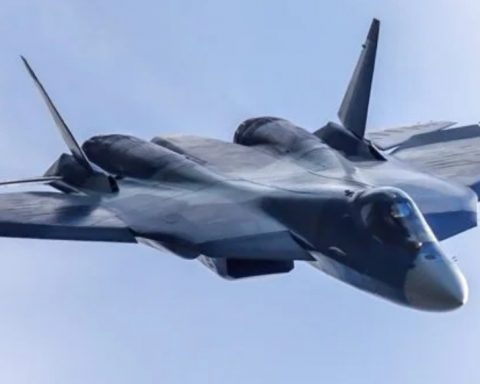Syria: Syrians in government-held areas of the war-torn country headed to polling stations early Wednesday to vote in a presidential election set to give President Bashar Assad a fourth seven-year term.
The vote is the second presidential election since the country’s conflict began 10 years ago and has been dismissed as a sham by the opposition and Western countries. Two other candidates are running for the country’s top post, which has been held by members of the Assad family for five decades.
They are little known figures, Abdullah Salloum Abdullah and Mahmoud Ahmad Marie. But competition with Assad is largely seen as symbolic.
Starting at 7 a.m., thousands began arriving at polling stations in Damascus, where streets have been decorated with giant posters of Assad and banners praising his rule. Few posters of the two other candidates appeared in the streets.
“We choose the future. We choose Bashar Assad,” read one of many banners raised in the capital Damascus.
No vote will be held in northeast Syria, which is controlled by US-backed Kurdish-led fighters, or in the northwestern province of Idlib that is the last major rebel stronghold in the country.
Still, in some parts of government-held areas, including the southern provinces of Daraa and Sweida, many have rejected the vote calling it “illegitimate.”
The Syrian Democratic Council that runs daily affairs in northeast Syria said in a statement it will not take part in the vote “before political solutions in accordance with UN Security Council resolutions, release of detainees, return of displaced and putting the basis for a political structure far away from tyranny.”
On Sunday, Prime Minister Hussein Arnous traveled to Sweida along with a dozen Cabinet ministers in the first such visit in years to meet local officials. There has reportedly been widespread anger against the vote and overspending on pro-Assad campaigns in the city at a time when much of the region’s population lives in poverty.
The vote this year comes as Syria’s economy is in free fall as a result of Western sanctions, government corruption and infighting, the coronavirus and the financial crisis in Lebanon, Syria’s main link with the outside world.
Some of the voters waiting at polling stations were putting on face masks. Over the past three months, intensive care units in public hospitals in Damascus reached full capacity due to a sharp rise in coronavirus infections, leading doctors to transfer patients to hospitals in other provinces. In March, Assad and his wife, Asma, tested positive for the virus.
The Biden administration has said it will not recognize the result of the Syrian election unless the voting is free, fair, supervised by the United Nation and represents all of Syrian society.
“We are not involved in these elections … in any way, and we, of course, have no mandate to be,” UN secretary-general’s spokesman Stephane Dujarric told reporters at the United Nations on Tuesday.
“We are, of course, aware that the elections are taking place. It’s important to remind you in answering the question that … these are being called under the auspices of the current constitution and not part of the political process that was established under resolution 2254.”
Syria’s Interior Minister Mohammad Rahmoun said 12,102 polling stations were set up in all the Syrian governorates. He said there are more than 18 million illegible voters in Syria and abroad. Syrians living abroad voted last week.
Syria had a population of 23 million before the conflict broke out a decade ago. The fighting has left nearly half a million dead and half the country’s population displaced, more than 5 million of them refugees outside Syria.
The civil war broke out in 2011 when Arab Spring-inspired protests against Assad family rule turned into an armed insurgency in response to a brutal military crackdown.
Assad has been in power since 2000 when he took over from his father, Hafez, who ruled before that for 30 years. Despite the war, which seemed at one point to threaten his rule, Assad remained in power supported by regional powerhouse Iran and Russia, which sent in military advisers and air power to push back the armed opposition.
Fifty-one persons, including seven women, applied to run for president but earlier this month, Syria’s Supreme Constitutional Court accepted only three applications.
Syria began a multicandidate vote in 2014 when Assad won nearly 90 percent of the vote. Before that, Syria held referendums in which Assad and his late father got landslide support.
Syrians vote in election certain to give Assad new mandate
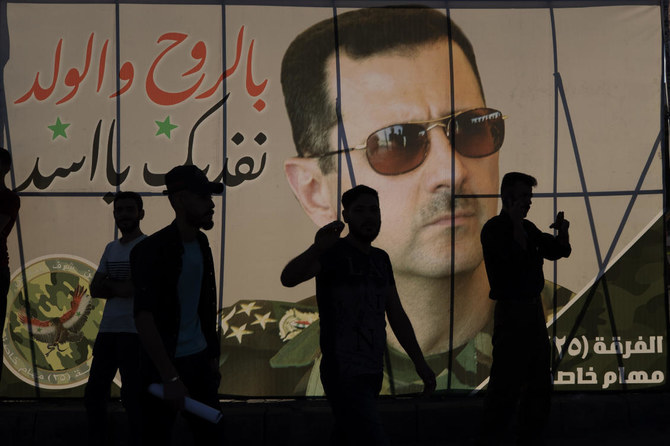
Latest from Blog
Negli ultimi giorni l’Italia si trova di fronte a un’ondata di episodi preoccupanti legati a tentativi
ROMA – Il Marocco si posiziona per svolgere un ruolo di primo piano nella produzione e
Monaco – Oltre 300 mila persone hanno animato oggi la città bavarese in occasione della Conferenza
ROMA – Acciona e Moeve hanno assicurato la disponibilità di terreni in Marocco per avviare gli
MADRID – La recente riunione sulla questione del Sahara occidentale, tenutasi a Madrid il 8 e
Il governo tedesco sostiene con entusiasmo il progetto Sila Atlantik, un’iniziativa ambiziosa volta a trasportare grandi
Festival e Premio IusArteLibri IL PONTE DELLA LEGALITA’ 2026 Non c’è Futuro senza Memoria: Il Diritto
Selon les informations rapportées par l’agence Tass, agence de presse russe, les États-Unis n’excluent pas l’imposition
Torna “Roma al Lavoro“, il job day di Roma Capitale. Una mattinata per favorire l’incontro tra
Conservo un piacevole ricordo della dr.ssa #mariaritaparsi L’ho conosciuta nel 2009 quando collaboravo con il prof.
